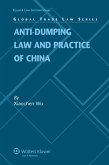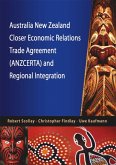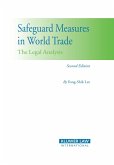The WTO Secretariat reports that during the period from 1995 to June 30, 2007 WTO members initiated 3097 anti-dumping investigations. Of these, 474 were put forward by India, which made it the largest user of this measure among WTO Members. The traditional argument of developing countries was that loopholes or absence of clear definitions in the anti-dumping rules have increased the possibility of abuses and discretionary practices against them. Now, many developing countries like India have become frequent users of this measure. For a better understanding of the various provisions of the WTO's Anti-dumping Agreement (ADA) a critical investigation of the resulting jurisprudence is a necessity. To that end, this timely work has a fivefold aim: To explore the jurisprudence that has emerged around the anti-dumping regime and how it affected developing countries; To assess how effectively and to what extent the WTO's Dispute Settlement Body (DSB) is able to analyze the violations of ADA provisions; To examine domestic compliance with DSB decisions; To study the Indian cases which come before the nation's Customs, Excise & Sales Tax Appellate Tribunal, various High Courts and the Supreme Court of India; and To offer recommendations for the improvement of the anti-dumping regime from a developing country perspective.
Dieser Download kann aus rechtlichen Gründen nur mit Rechnungsadresse in A, B, BG, CY, CZ, D, DK, EW, E, FIN, F, GR, HR, H, IRL, I, LT, L, LR, M, NL, PL, P, R, S, SLO, SK ausgeliefert werden.









